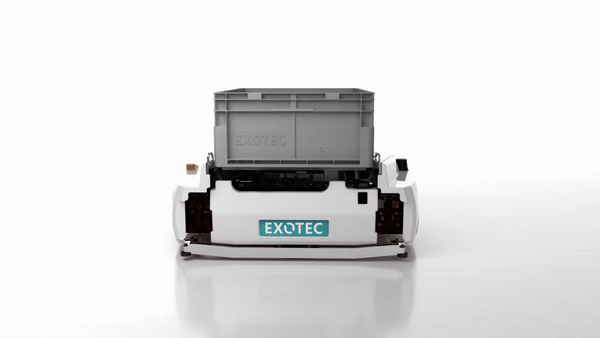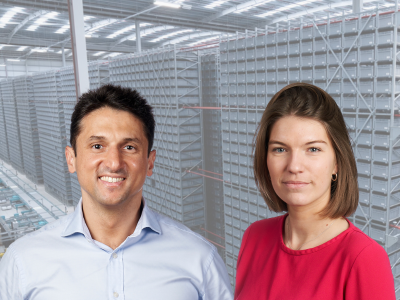
Warehouse Virtual Tour
Take a virtual tour of Exotec’s fully equipped warehouse
Register for our Next Webinar
Discover the Next Generation of Warehouse Automation — In Your Language
Warehouses across Europe and beyond are embracing high performance robotic based goods-to-person (GTP) automation systems. Particularly as some contemporary systems are able to handle very high throughput volumes with industry leading productivity, whilst increasing storage density and utilising the full height of many buildings without needing mezzanines. They are very flexible, easy to expand, and robots can be moved from site to site to maximise their usage.
However, experience suggests that the UK’s third-party logistics companies (3PLs) haven’t yet fully embraced owning and investing in more sophisticated high performance automation. To maximise the potential of robotics, there are a number of obstacles 3PLs need to overcome which I have discussed below
Open-book contracts have traditionally benefited both 3PLs and their customers by keeping margins low and reducing risks. However, the primary revenue for 3PLs under these contracts comes from a small management charge added on top of operational costs. With automation potentially reducing labour costs by up to 80%, 3PLs face significant drops in revenue and profit, making large investments in automation unappealing despite the long-term benefits. Despite these challenges, some 3PLs are finding creative ways to address these issues.
Historically, 3PL fulfillment contracts were often as short as two years, with three to five years now becoming more common. These shorter contract lengths do not allow sufficient time for 3PLs to recoup the substantial investments required to achieve significant reductions in labour costs and warehouse space utilisation. Achieving an 80% reduction in labour is essential for addressing labour shortages and controlling inflation effects, yet the short-term nature of many contracts hinders this progress.

Take a virtual tour of Exotec’s fully equipped warehouse

Meet our experts and book a slot for a personalized product demo
The ownership of the warehouse significantly impacts the type of automation solutions a 3PL can implement. If the warehouse is customer-owned, the 3PL is limited to low-impact, easily relocatable automation, which only marginally improves productivity and may decrease storage density. Conversely, if a 3PL owns the warehouse, it can invest in automation with lower risk and potentially greater returns, particularly if the automation is adaptable for various clients.
Progressive 3PLs are beginning to rethink their operational strategies to make automation more adoptable. This includes integrating automation into new contract proposals and creating large-scale, multi-tenant sites. These changes are aimed at benefiting both their customers and their own business sustainability. Simon Jones believes that technology and commercial innovation will be critical for the success of 3PLs in the coming years, indicating a significant transformation in the sector throughout the 2020s.
As the logistics sector continues to evolve, the integration of advanced robotic systems and the reevaluation of contract terms will play pivotal roles. The next few years will likely be a fascinating period of growth and innovation for 3PLs in the UK as they adapt to the new technological landscape and market demands.
Exotec helps logistics service providers to optimize their preparation. Our Skypod® system, which includes autonomous mobile robots, picking stations, and Deepsky® warehouse software, ensures efficient and flexible order picking around the clock.

Take a virtual tour of Exotec’s fully equipped warehouse

Meet our experts and book a slot for a personalized product demo
Contact us to find out more about how we can ensure your business receives the optimum warehouse automation solution.

